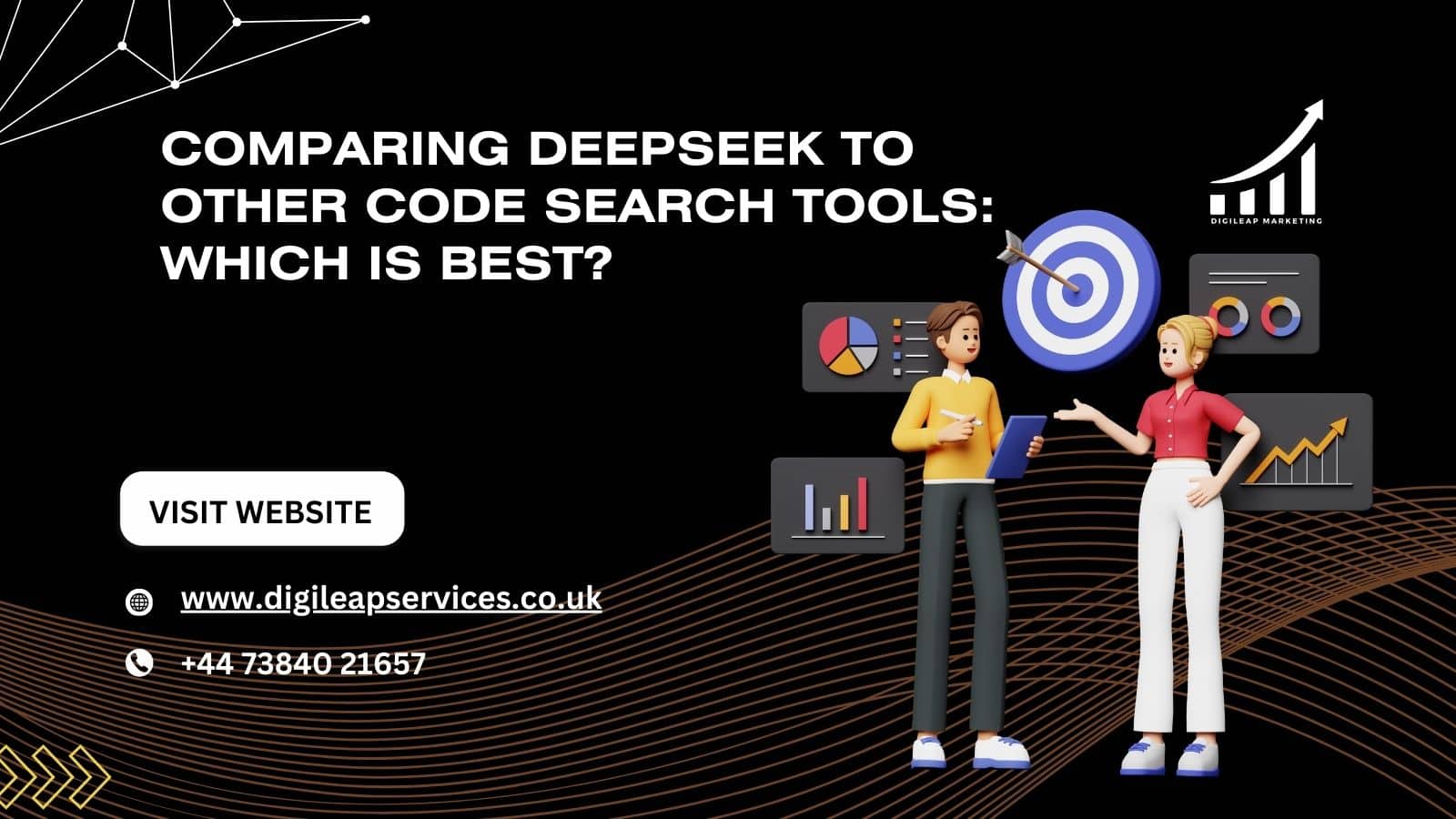Comparing Deepseek to Other Code Search Tools: Which Is Best?
The Need for Advanced Code Search Tools
Efficiency is the mantra nowadays in the fast world of software development. Given their frantic work life, developers keep searching for code snippets, functions, or debugging solutions to ease their work. Unfortunately, when traditional search methods lack proper context for the code, searches become maddeningly slow and tiresome. That’s when advanced code-searching tools come in so programmers can quickly screen and implement solutions.
Deepseek, an AI-enabled code-searching tool, has gathered all the limelight. So where does it stand compared to other killer tools such as Sourcegraph and OpenGrok? Each tool is a repository of unique features that target different developer needs. The strengths and weaknesses of these tools will be discussed in this blog to help you decide which fits modern coding needs.
What Is Deepseek? The Game-Changer in Code Search
Deepseek is an AI-based code search tool intended to improve the developer experience. It is different from traditional search engines, which depend on keyword matching. With the help of machine learning and natural language processing (NLP), Deepseek understands and analyzes code search queries in a way that is more intuitive than keyword searches.
One of the things that praise Deepseek’s name is its contextual understanding of queries. It does not only search for matches, but the tool understands what is behind a search to provide more accurate and relevant results. It is very good for developers who want to quickly retrieve interrelated code snippets without having to deal with irrelevant hits.
Deepseek provides multi-language support for search while programmers are working on several programming languages: Python, JavaScript, Java, C++, and many others. It also features AI-assisted code suggestions that recommend optimized solutions based on past searches and common coding patterns and serve as an AI assistant for software development.
Another big thing about Deepseek is that it integrates smoothly with popular IDEs, such as VS Code, JetBrains, and cloud-based environments. This guarantees that developers can perform advanced searches without leaving their working environments, contributing to workflow efficiency.
Deepseek vs. Sourcegraph: Who Wins the AI Battle?
Widely used by developers and designers, Sourcegraph is another powerful universal code-searching tool. It specializes in searching large-scale repositories, making fast, structured searches that help the team maneuver through complex codebases.
Although Sourcegraph is fast and efficient, it does not have some of the AI-driven features that Deepseek offers. In contrast to Sourcegraph’s holistic approach to code searches based mainly upon keywords, Deepseek employs natural language processing to provide context-sensitive results for users. This means Deepseek users may use plain English to perform their searches, making it easier to obtain relevant pieces of code with no knowledge of their exact keywords.
Moreover, Deepseek suggests code using the AI feature absent in Sourcegraph. Consequently, the feature assists developers in searching for better coding solutions based on context, thus serving both new and experienced programmers alike.
Notwithstanding the AI offerings of Deepseek, Sourcegraph can still be a mighty contender for developers working with huge repositories because of its performance in indexing and searching through large codebases. Deepseek, however, is the alternative for anyone looking for enhanced precision due to AI-based searching.
OpenGrok vs. Deepseek: The Performance Showdown
OpenGrok, the popularly utilized open-source tool for code search and indexing, is created for developers who want a fast and structured searching mechanism in their large repositories. It stays lightweight and efficient, thus being preferred by teams that rank simple and speedy above all else.
With the absence of AI-powered search, the biggest shortcoming of OpenGrok becomes evident. Deepseek understands natural language queries, whereas the OpenGrok tool is strictly a keyword-based indexed tool. Thus, the chance is that if a developer was not using the very keyword that OpenGrok has in mind, this tool might render the farthest from a relevant result.
The other major shortcoming that OpenGrok stumbles on is adaptability to different coding styles. Deepseek, on the other hand, analyzes the coding patterns, proposes improvements, and chooses the relevant code snippets according to the intent, so this is more adaptive to the dynamic nature of software development.
If the team’s main requirement is for a simple, fast search tool, then OpenGrok would work fine. However, when AI precision and contextual insights matter for developers, Deepseek is the right ultimate choice.
Why Deepseek Stands Out Among Code Search Tools
Exceeding its capacity The AI capabilities of Deepseek are its core intent for optimizing developers’ productivity. Contextual search coupled with intelligent recommendations and integration possibilities into IDEs makes Deepseek indispensable for coding professionals.
Enhanced search accuracy is one of the primary benefits of Deepseek. Regular search engines bombard developers with irrelevant results, and they have to backtrack through several snippets to reach the right one. Deepseek’s AI-powered algorithms get the meaning behind the search queries and help with the situation by saving time and effort.
Additionally, cross-language support enables developers to switch seamlessly between different programming languages, which is beneficial for full-stack developers working on various languages within a single project.
Deepseek enables cloud-based searches for repositories stored on the cloud, free of the limits of local storage. Because of this, it is an ideal solution for remote teams and companies relying on cloud infrastructure.
For companies that wish to integrate advanced AI-driven tools directly into the software development pipeline, Digileap Services provides professional advice to aid in the adoption of Deepseek-type technologies to optimize code efficiency and increase productivity.
Conclusion: Which Code Search Tool Should You Choose?
Developers should consider their individual needs when selecting the best code search tool. If AI-powered search comes first in importance coupled with intelligent recommendations, the candidate is DeepSeek. Its strength lies in natural language query understanding, context-aware results, and seamless integration into the IDEs, therefore being the right tool for the current age of software development.
At the same time, Sourcegraph will stand as a good second option for developers who want a quick and structured way to search within large repositories. Sourcegraph’s indexing and searching capabilities are excellent in huge codebases; however, it does not have the AI features of Deepseek.
For an open-source and lightweight solution, OpenGrok will be at the bottom of the list. The very absence of AI insights and contextual awareness makes it not as effective for really complex uses.
In conclusion, Deepseek stands out as the primary choice for developers and enterprises in need of an intelligent, AI-driven code search. The incorporation of Deepseek-like tools into your workflow reduces development turnaround by reducing search time, subsequently increasing efficiency in writing code.
Do you wish to take advantage of some of the groundbreaking AI tools? Digileap Services consults with companies on maximizing new technology to improve their software developments and keep pace in this digital age.







